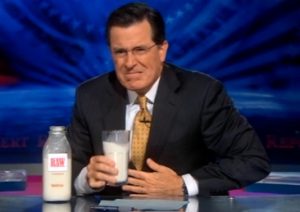A protracted outbreak of Escherichia coli O157:H7 infections was caused by consumption of unpasteurized (“raw”) milk sold at Oregon grocery stores. Although it never caused a noticeable increase in reported infections, the outbreak was recognized because of routine follow-up interviews.
 Six of 16 Portland-area cases reported between December 1992 and April 1993 involved people who drank raw milk from dairy A. By pulsed-field gel electrophoresis (PFGE), E. coli O157:H7 isolates from these cases and from the dairy A herd were homologous (initially, 4 of 132 animals were E. coliO157:H7-positive).
Six of 16 Portland-area cases reported between December 1992 and April 1993 involved people who drank raw milk from dairy A. By pulsed-field gel electrophoresis (PFGE), E. coli O157:H7 isolates from these cases and from the dairy A herd were homologous (initially, 4 of 132 animals were E. coliO157:H7-positive).
Despite public warnings, new labeling requirements, and increased monitoring of dairy A, retail sales and dairy-associated infections continued until June 1994 (a total of 14 primary cases). Seven distinguishable PFGE patterns in 3 homology groups were identified among patient and dairy herd E. coli O157:H7 isolates. Without restrictions on distribution, E. coli O157:H7 outbreaks caused by raw milk consumption can continue indefinitely, with infections occurring intermittently and unpredictably.
A prolonged outbreak of Escherichia coli O157:H7 infections caused by commercially distributed raw milk
1.sep.2017
The Journal of Infectious Diseases
Keene et al.
